#health feminism
Text
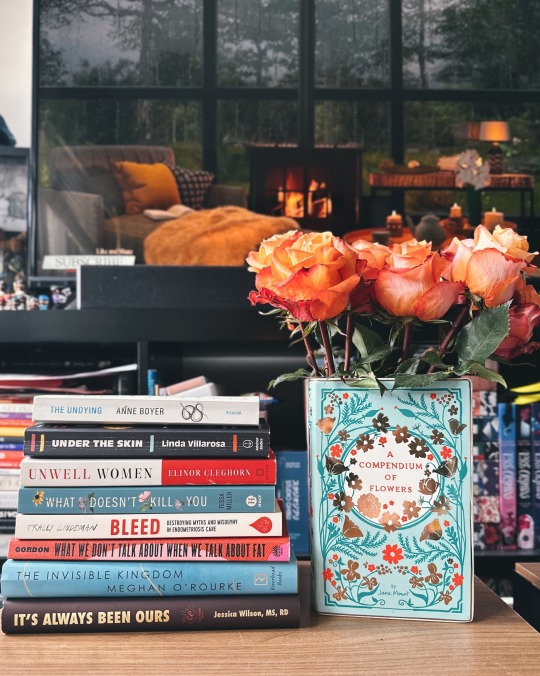
You all know that healthcare inequity is an important issue for me. I recently gathered a second stack of books together, a stack of incredible, eye-opening books about healthcare feminism, body justice, and advocacy. Each one of these books has helped to change my perspective and broaden my knowledge about the issues in our healthcare system today, from dismissal to misdiagnosis to chronic pain. Check out my list!
#health feminism#healthcare inequity#body justice#endometriosis#chronic illness#chronic pain#book stack#bias in medicine#book riot
119 notes
·
View notes
Text
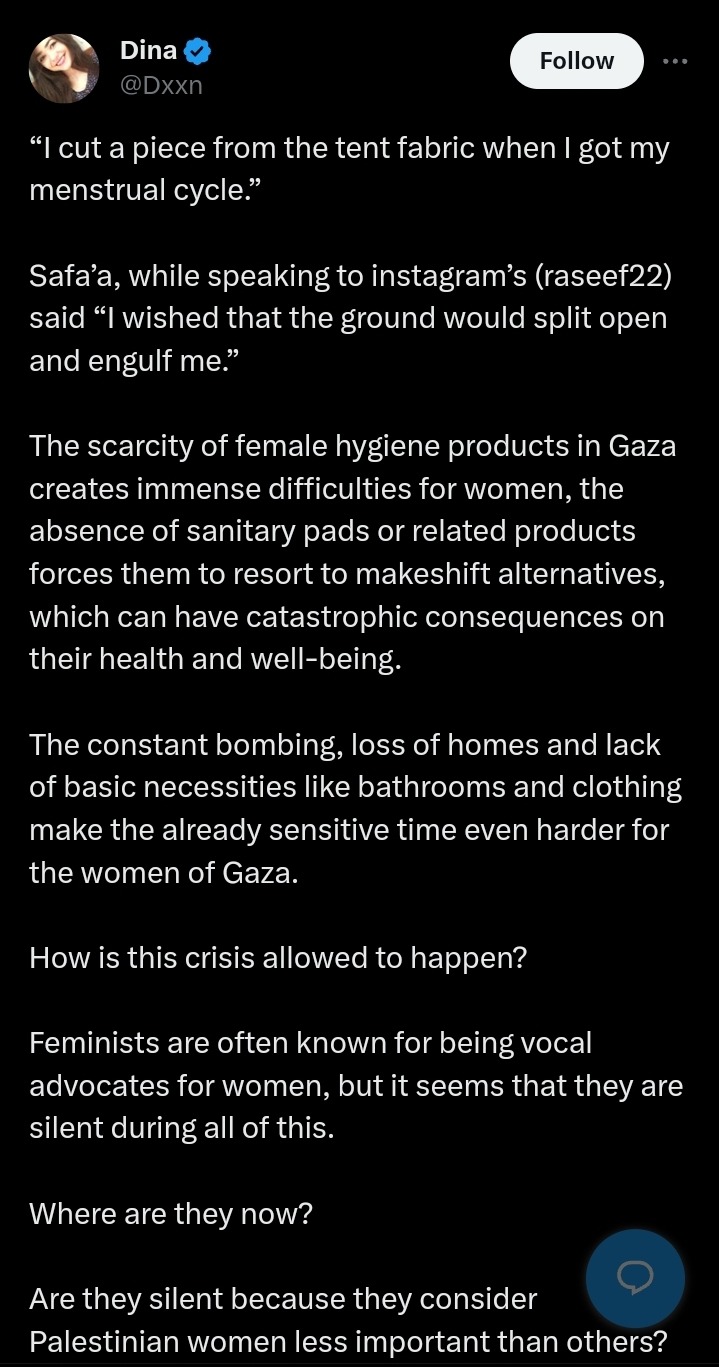


CONT the delivery of essential items into Gaza.
#yemen#jerusalem#tel aviv#current events#palestine#free palestine#gaza#free gaza#news on gaza#palestine news#news update#war news#war on gaza#feminism#women's rights#womens rights#menstruation#menstrual health#edited
19K notes
·
View notes
Text
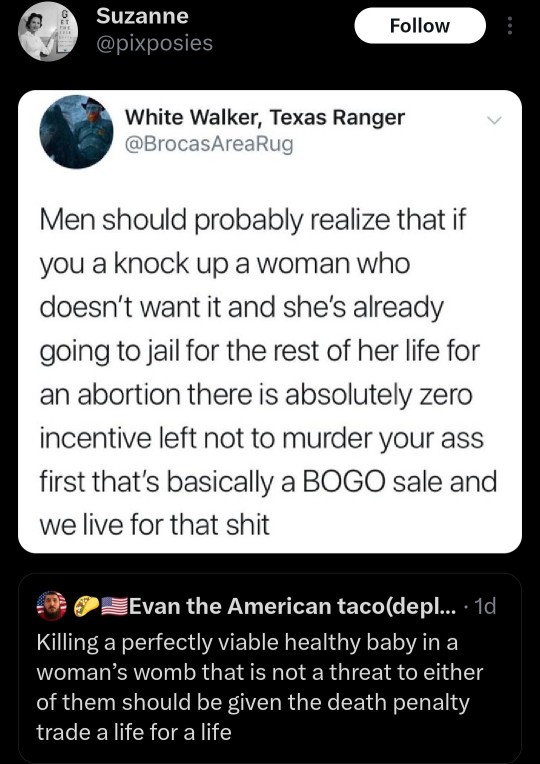

13K notes
·
View notes
Text

#words#quotes#books#book quotes#love#beauty#dark academia#light academia#aesthetic#chaos academia#books and libraries#motivation#inspiration#vintage#relationship#feminism#mental health#positive
6K notes
·
View notes
Text
As I keep shouting into the void, pathologizers love shifting discussion about material conditions into discussion about emotional states.
I rant approximately once a week about how the brain maturity myth transmuted “Young adults are too poor to move out of their parents’ homes or have children of their own” into “Young adults are too emotionally and neurologically immature to move out of their parents’ homes or have children of their own.”
I’ve also talked about the misuse of “enabling” and “trauma” and “dopamine” .
And this is a pattern – people coin terms and concepts to describe material problems, and pathologization culture shifts them to be about problems in the brain or psyche of the person experiencing them. Now we’re talking about neurochemicals, frontal lobes, and self-esteem instead of talking about wages, wealth distribution, and civil rights. Now we can say that poor, oppressed, and exploited people are suffering from a neurological/emotional defect that makes them not know what’s best for themselves, so they don’t need or deserve rights or money.
Here are some terms that have been so horribly misused by mental health culture that we’ve almost entirely forgotten that they were originally materialist critiques.
Codependency
What it originally referred to: A non-addicted person being overly “helpful” to an addicted partner or relative, often out of financial desperation. For example: Making sure your alcoholic husband gets to work in the morning (even though he’s an adult who should be responsible for himself) because if he loses his job, you’ll lose your home. https://www.nytimes.com/2022/07/08/opinion/codependency-addiction-recovery.html
What it’s been distorted into: Being “clingy,” being “too emotionally needy,” wanting things like affection and quality time from a partner. A way of pathologizing people, especially young women, for wanting things like love and commitment in a romantic relationship.
Compulsory Heterosexuality
What it originally referred to: In the 1980 in essay "Compulsory Heterosexuality and Lesbian Existence," https://www.journals.uchicago.edu/doi/abs/10.1086/493756 Adrienne Rich described compulsory heterosexuality as a set of social conditions that coerce women into heterosexual relationships and prioritize those relationships over relationships between women (both romantic and platonic). She also defines “lesbian” much more broadly than current discourse does, encompassing a wide variety of romantic and platonic relationships between women. While she does suggest that women who identify as heterosexual might be doing so out of unquestioned social norms, this is not the primary point she’s making.
What it’s been distorted into: The patronizing, biphobic idea that lesbians somehow falsely believe themselves to be attracted to men. Part of the overall “Women don’t really know what they want or what’s good for them” theme of contemporary discourse.
Emotional Labor
What it originally referred to: The implicit or explicit requirement that workers (especially women workers, especially workers in female-dominated “pink collar” jobs, especially tipped workers) perform emotional intimacy with customers, coworkers, and bosses above and beyond the actual job being done. Having to smile, be “friendly,” flirt, give the impression of genuine caring, politely accept harassment, etc.
https://weld.la.psu.edu/what-is-emotional-labor/
What it’s been distorted into: Everything under the sun. Everything from housework (which we already had a term for), to tolerating the existence of disabled people, to just caring about friends the way friends do. The original intent of the concept was “It’s unreasonable to expect your waitress to care about your problems, because she’s not really your friend,” not “It’s unreasonable to expect your actual friends to care about your problems unless you pay them, because that’s emotional labor,” and certainly not “Disabled people shouldn’t be allowed to be visibly disabled in public, because witnessing a disabled person is emotional labor.” Anything that causes a person emotional distress, even if that emotional distress is rooted in the distress-haver’s bigotry (Many nominally progressive people who would rightfully reject the bigoted logic of “Seeing gay or interracial couples upsets me, which is emotional labor, so they shouldn’t be allowed to exist in public” fully accept the bigoted logic of “Seeing disabled or poor people upsets me, which is emotional labor, so they shouldn’t be allowed to exist in public”).
Battered Wife Syndrome
What it originally referred to: The all-encompassing trauma and fear of escalating violence experienced by people suffering ongoing domestic abuse, sometimes resulting in the abuse victim using necessary violence in self-defense. Because domestic abuse often escalates, often to murder, this fear is entirely rational and justified. This is the reasonable, justified belief that someone who beats you, stalks you, and threatens to kill you may actually kill you.
What it’s been distorted into: Like so many of these other items, the idea that women (in this case, women who are victims of domestic violence) don’t know what’s best for themselves. I debated including this one, because “syndrome” was a wrongful framing from the beginning – a justified and rational fear of escalating violence in a situation in which escalating violence is occurring is not a “syndrome.” But the original meaning at least partially acknowledged the material conditions of escalating violence.
I’m not saying the original meanings of these terms are ones I necessarily agree with – as a cognitive liberty absolutist, I’m unsurprisingly not that enamored of either second-wave feminism or 1970s addiction discourse. And as much as I dislike what “emotional labor” has become, I accept that “Women are unfairly expected to care about other people’s feelings more than men are” is a true statement.
What I am saying is that all of these terms originally, at least partly, took material conditions into account in their usage. Subsequent usage has entirely stripped the materialist critique and fully replaced it with emotional pathologization, specifically of women. Acknowledgement that women have their choices constrained by poverty, violence, and oppression has been replaced with the idea that women don’t know what’s best for themselves and need to be coercively “helped” for their own good. Acknowledgement that working-class women experience a gender-and-class-specific form of economic exploitation has been rebranded as yet another variation of “Disabled people are burdensome for wanting to exist.”
Over and over, materialist critiques are reframed as emotional or cognitive defects of marginalized people. The next time you hear a superficially sympathetic (but actually pathologizing) argument for “Marginalized people make bad choices because…” consider stopping and asking: “Wait, who are we to assume that this person’s choices are ‘bad’? And if they are, is there something about their material conditions that constrains their options or makes the ‘bad’ choice the best available option?”
#mad pride#neurodiversity#ableism#ageism#youth rights#liberation#disability rights#classism#capitalism#mental health culture#pop psychology#feminism#emotional labor
6K notes
·
View notes
Text
@/kittiearie on tiktok wrote this caption on her video: "When the sundown sisters' feminism is being upset Margot Robbie wasn't nominated for an Oscar but silent on how women and girls in Palestine don't have access to pads, tampons, contraceptive pills and other hygeine products while mothers are having their children without anesthetics."
some of white western feminist advocacy boils down to viewing issues (problematically so) as one-dimensional. their praxis never includes reflexivity, accountability, and intersectionality; while they ensure that their OWN reproductive health rights are never threatened, they vastly ignore so many people suffering in the world just because it doesn't directly impact them -looking at their priorities is just always so shameless and despicable.
#feminist#feminism#social justice#free palestine#free gaza#current events#current news#us imperialism#western imperialism#white feminism#intersectional social justice#intersectional activism#intersectional feminism#intersectionality#palestinian liberation#we are not free until we all are#reproductive health#reproductive rights#healthcare#margot robbie
2K notes
·
View notes
Text
I don't give a damn about men's mental health since little girls are offing themselves because boys post deep fakes of them and post their naked pics online. I really could not care less about male mental health when they destroy ours daily.
#radical feminism#radblr#female separatism#male mental health is not my business#men ruin everything#teenage girls deserve so much better
3K notes
·
View notes
Text
HEY PLEASE READ !!
if you guys AT ALL enjoy using the internet whether it's for news, entertainment, or communication purposes there is a bill floating around right now that has a good possibility of being passed that will influence the way we ALL use the internet. this bill is called KOSA and it presents itself as "kids online safety act" but in reality it is and will try to sensor SO much important information out there about LGBTQ+, POC communities, feminism and women's rights, and so much more. the bill targets mainly people under 17 but this bill will affect adults too. your favorite social media and websites will become highly cleansed from anything the government deems as "dangerous" to children online. one of the ways they are trying to ensure kids aren't accessing content that is "dangerous" enforces EVERYONE to upload private information or a photo of your ID to access social media apps and websites. IF YOU CARE AT ALL ABOUT PROTECTING FREE SPEACH ON THE INTERNET AND THE WAY WE USE IT TO COMMUNICATE PLEASE HELP ENSURE THAT THIS BILL DOES NOT PASS.
CALL YOUR REPRESENTATIVES AND SENATORS TO SHOE THAT YOU DO NOT SUPPORT THE KOSA BILL.
PLEASE REBLOG AND SHARE !!!!
HERE IS A FREE PETITION YOU CAN SIGN TO HELP:
#lgbtq#feminism#kosa bill#fuck kosa#stop kosa#activism#neurodiversity#lgbtq community#lgbt#lgbtqia#activist#spread the word#end kosa#united states#us government#tumblr#leftists#liberal#news#important#please share#support#mental health
1K notes
·
View notes
Text
"we like young women because biologically, that means they're fertile"
then why do you find periods disgusting? those are the single most indicative sign of fertility. by that logic, you must be incredibly attracted to a women who speaks openly about her period, right?
#radical feminists please touch#radical feminists do interact#radblr#bisexual#bi#transmedical#transmed#listen to trans women#misogynist#fertility#periods#menstruation#menstruation health#menstrual health#menstrual cycle#men are stupid#terfblr#radical feminism#transgender#gender critical#terfsafe#feminism
2K notes
·
View notes
Text
!!!!
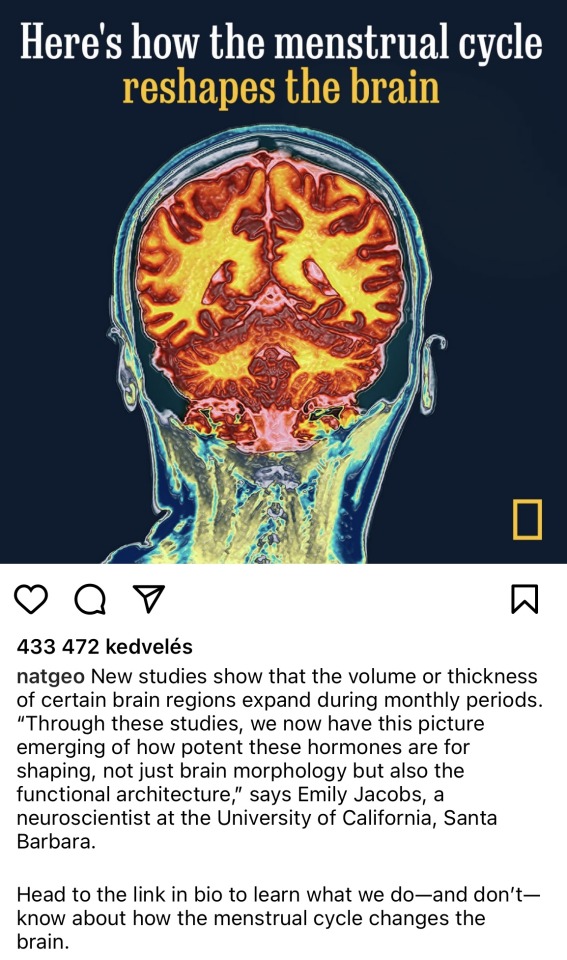
this might be an interesting read
#radfem#radblr#radical feminism#feminism#menstruation#neuroscience#menstrual cycle#brain#womens health
632 notes
·
View notes
Text

As you all know, I read a lot of books about health feminism and the biases in medicine that threaten us all. Bleed: Destroying Myths and Misogyny in Endometriosis Care by Tracey Lindeman, is one of the best of these reads that I've dug into for quite some time. Lindeman focuses in specifically on endometriosis and similar issues of chronic pelvic pain and illness. She channels her anger over her own experience into a superb summary of a book about the issues, horrors, and biases that the healthcare system imposes on people assigned female at birth.
This book digs into a lot of the biggest issues. Endo is deeply, desperately common, and yet the delay from onset to diagnosis is horrifically long. She describes all the meds and excuses given to get patients to go away when most experts agree that excision is the best solution for endo patients and their pain. She digs into the resistance of all doctors to hysterectomy, and all its roots in doctors' prioritizations of women's possible fertility over their wellbeing and daily pain. She exposes the dehumanization and horror of medical trauma, opening up brutally about her own literal PTSD from some of her horrific doctor's appointments. All people who have been dismissed, traumatized, and hurt at the doctor's office will learn something from this book and be inspired by Lindeman's own painful journey and advocacy, and people with endometriosis in particular will find this an absolute must-read.
Lindeman also does the best job of nearly all the books I've read so far at inclusivity. Many writers will acknowledge trans issues and women of color, for example, and then be clear that most of what they're about to talk about is applicable to cis women or women assigned female at birth, and then move on. Lindeman takes time at every step of the way to dig into the ways things are even worse for queer, trans, and gender non-conforming populations, to use inclusive language, and to highlight the separate or worse biases that people of color face in the same situations.
Content warnings for misogyny, fatphobia, suicidal ideation, medical trauma, body horror, domestic abuse, PTSD and anxiety, and mentions of miscarriage and suicide.
#bleed#tracey lindeman#bookworm#health feminism#chronic illness#chronic pain#chronically ill#my book reviews#bias in medicine
54 notes
·
View notes
Text
I'm laughing at this guy getting fucking ratio pummeled.
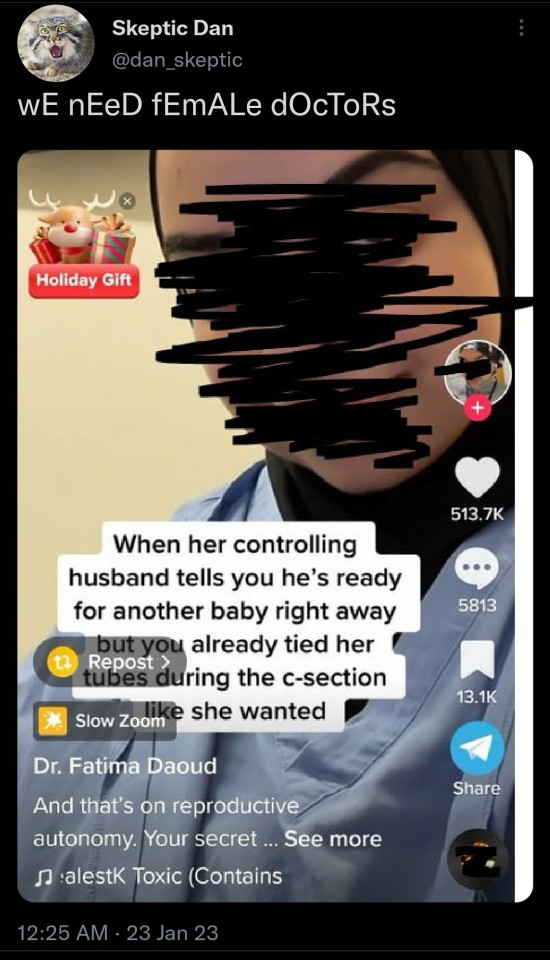


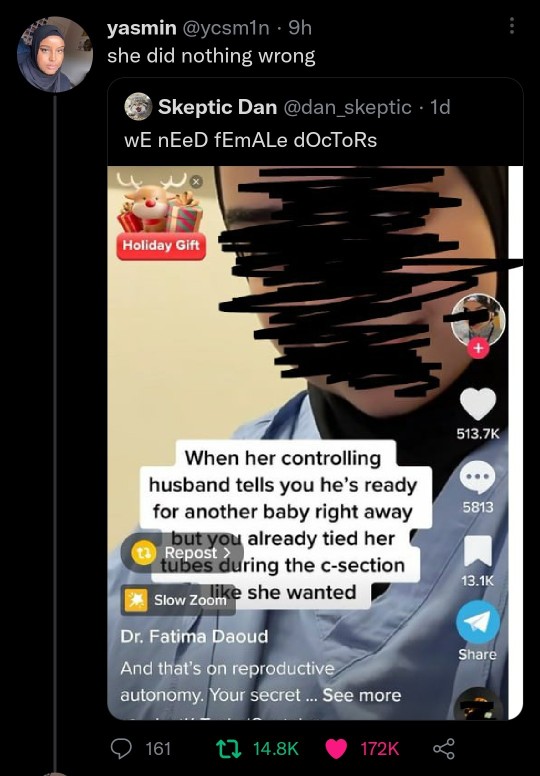
8K notes
·
View notes
Text
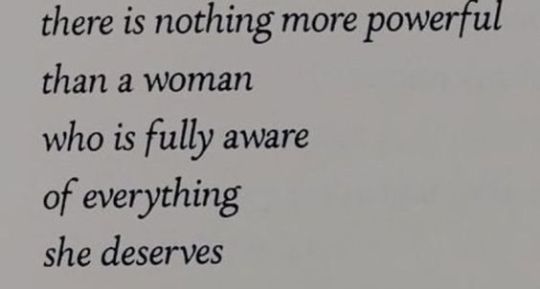
#words#quotes#books#book quotes#love#beauty#dark academia#light academia#aesthetic#chaos academia#books and libraries#motivation#inspiration#vintage#relationship#feminism#mental health#positive
4K notes
·
View notes
Text


The Ones Who Live | 1x03 - Bye
#I AM ABSOLUTELY FERAL#Rick Grimes#*#rg#The Ones Who Live#towl spoilers#SCREAMS#would let him raw me in a rusty rundown gas station that looks like it belongs in deliverance or the hills have eyes or somethin#no censoring we die like men#i was gonna blame daylight saving time but i'm just like this#i clearly need him in a way that's concerning to feminism#and my general health it appears#im willing to get gas station tetanus#i'd be walking like i'd ridden a horse for 500 miles#until we're fined for disturbing the peace#what a majestically gorgeous man#that face is the actual iron throne#i'll start the war to sit there#i am reverting to my primal state#i want him to build me a house and a fire and father my children#i don't like kids#but i'm about to make like that time i played Life and had so many kids i had to get an extra car#as long as he will protect and provide for them#i need to go to bed
791 notes
·
View notes
Text
Do girls know that they can never have sex? Do girls know that they can have sex with women? Do girls know their first time isn’t supposed to hurt? Do girls know that they’re not supposed to bleed? Do girls know that vaginas becoming ‘loose’ with more sex is a myth? Do girls know that you can stop halfway through? Do girls know that if they have a mediocre first time, it doesn’t mean it’ll feel like that forever? Do girls know that they don’t have to prove they’re not boring or prudish? Do girls know it’s okay to demand a condom? Do girls know they don’t have to ever ‘give in’ to demands, even a little? Until teenage girls and women know every way they can say ‘yes’ or ‘no’, sexual liberation isn’t complete.
#By girls I mean like ~15-16 years old#Who are coming into their sexuality and possibly having their first experiences#My post#feminism#feminist#female sexuality#female health#radical feminism#radical feminist#radfem#radblr#My bangers
1K notes
·
View notes
Text

📍 Today marks the anniversary of the 1973 Supreme Court ruling in Roe v. Wade, which struck down several Texas laws that criminalized abortion. Roe changed the abortion landscape in the U.S., though it didn’t ensure access for everyone. Roe should have been the floor, not the ceiling for abortion access. As we come up on almost two years since Roe fell, it is hard not to see the same issues resurfacing. In Texas and throughout the country, pregnant people are facing criminalization for their pregnancy choices and outcomes. The reality is the Supreme Court’s decision and the state bans that followed don’t recognize the intricacies of people’s lives and experiences. Abortion bans harm real people and their families.
✊ It’s on us to continue the fight for our rights, not only for us – but for future generations.
Image description: Digital illustration of a diverse group of eight faces. There’s text in the center that reads, ‘abortion is freedom,’ with secondary text scattered throughout the image that reads, ‘from poverty, from a future I don’t want, from a life threatening pregnancy and from the wrong partner.’
#art#feminist#feminism#illustration#reproductive rights#roe v wade#roe#reproductive justice#reproductive health#abortion#pro choice#pro abortion
633 notes
·
View notes